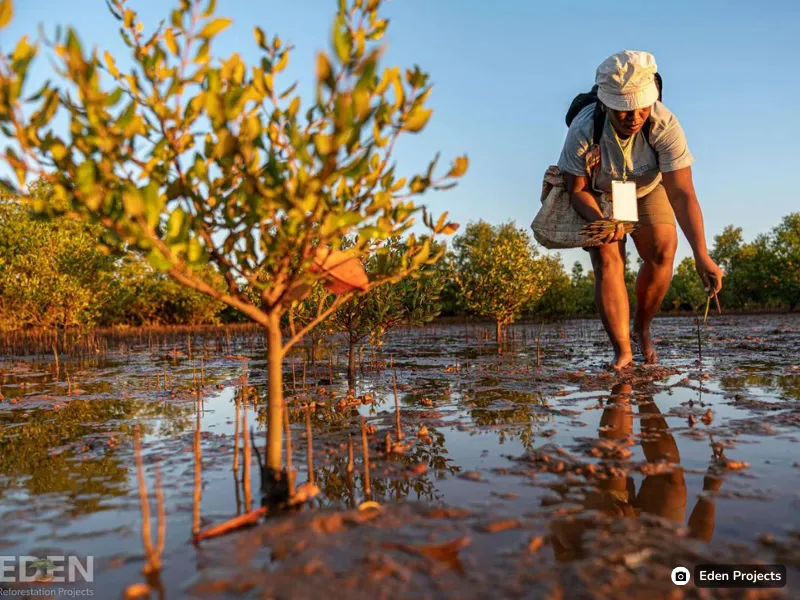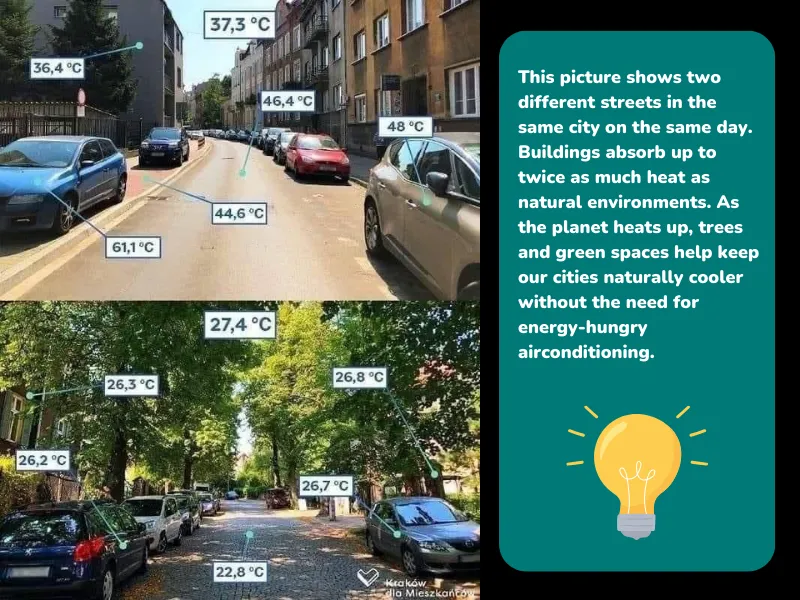The 10 benefit of planting trees:
Planting trees has many benefits, not just for the environment, but for our health and well-being. Below are the 10 advantages of planting trees but we’ll start with the bonus benefit first because it’s a major benefit!
Bonus Benefit
Creating jobs: Generous support from wealthier nations is turning tree planting into a source of honest work for vulnerable communities. It’s estimated that a whopping 100.000 people in Africa and South East Asia are getting employment from tree-planting initiatives!

Combating climate change
Trees are crucial in the fight against climate change as they act as natural carbon sinks, absorbing carbon dioxide from the atmosphere and storing it in their leaves and trunks. A mature tree can absorb up to 25 kilograms of CO2 per year, contributing significantly to mitigating the effects of climate change.

Improving air quality
Beyond their role in combating climate change, trees also act as natural air filters, removing pollutants like dust, smoke, and smog from our air. Furthermore, they release oxygen, which is vital for sustaining life, thus enhancing overall air quality in the environment.

Protecting biodiversity
Trees play a pivotal role in maintaining biodiversity by providing habitat for a diverse range of plants and animals. Their presence helps to support and sustain various ecosystems, contributing to the overall health and balance of natural environments.

Conserving water
Through their intricate root systems and foliage, trees help to conserve water by reducing soil erosion and increasing water infiltration into the ground. This not only prevents soil degradation but also aids in preventing floods and droughts by regulating water flow and retention.

Reducing stress
Scientific studies have demonstrated that spending time in nature, particularly around trees, can significantly reduce stress levels and improve mental well-being. The serene and calming presence of trees offers a therapeutic environment that promotes relaxation and psychological rejuvenation.

Improving physical health
Trees contribute to better physical health by providing shade and cooling the air, thereby reducing the risk of heat-related illnesses. Additionally, their role in improving air quality can benefit individuals with respiratory problems, enhancing overall public health in communities.

Creating beauty
Trees enrich landscapes and communities with their natural beauty, enhancing the aesthetic appeal of surroundings. Their presence transforms urban areas into vibrant and inviting spaces, making them more enjoyable for residents and visitors alike.

Providing food
Certain tree species bear fruits and nuts that serve as valuable food sources for both humans and wildlife. This provision of food not only sustains ecosystems but also supports local economies and promotes biodiversity.

Medicinal
Trees serve as a “green pharmacy,” offering essential substances used in medicinal compounds. Many tree species possess medicinal properties, providing valuable resources for traditional and modern medicine practices, underscoring their significance beyond their aesthetic appeal.

Reduced energy costs
By strategically planting trees around buildings, they can help to reduce energy consumption and costs. Trees offer natural cooling in the summer and wind protection in the winter, thus decreasing the need for artificial heating and cooling systems, consequently lowering energy bills and reducing environmental impact.






















